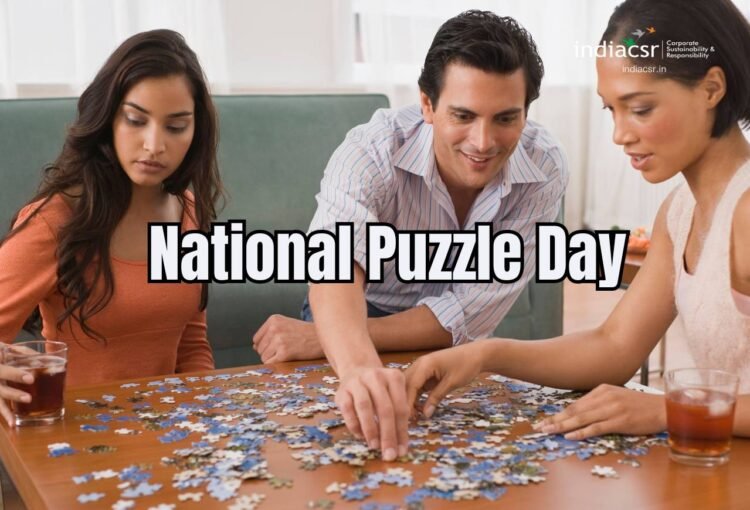National Puzzle Day is a day to celebrate the joy and benefits of puzzles of all kinds, from jigsaw puzzles and crosswords to Sudoku and brain teasers. It is observed every year on January 29, and it invites puzzle enthusiasts and novices alike to challenge their minds and have fun with puzzles. In this article, we will explore the definition, history, characteristics, role and impact of National Puzzle Day.
What is National Puzzle Day and how did it start?
National Puzzle Day is an annual event that was created by Jodi Jill, a puzzle lover and syndicated newspaper puzzle maker, in 20021. She started giving away free puzzles in a magazine for teachers, and soon received requests for more puzzles throughout the year. She decided to send out free puzzles only on her birthday, January 29, and this became known as National Puzzle Day2. The day gained popularity over the years, and now it is recognized by various puzzle organizations, media outlets, and puzzle fans around the world.
Also Read: National Puzzle Day: Date, History, Significance, Celebrations and Important Facts
What are the characteristics and traditions of National Puzzle Day?
National Puzzle Day is not limited to a specific type of puzzle. It embraces the whole spectrum of puzzles, from traditional ones like jigsaw puzzles and crosswords, to modern ones like Sudoku and word searches, to creative ones like riddles and logic puzzles. The day encourages people to try new puzzles, or revisit old favorites, and to share their passion and enjoyment with others. Some of the common ways to celebrate National Puzzle Day are:
- Solving puzzles individually or with friends and family, either online or offline, using books, magazines, websites, apps, or physical puzzles.
- Hosting or attending puzzle parties, events, or competitions, where people can socialize, exchange puzzles, and challenge each other.
- Creating or customizing puzzles, using online tools, software, or DIY methods, and giving them as gifts or displaying them as art.
- Learning more about puzzles, their history, types, makers, and trivia, by reading books, articles, blogs, or watching videos or documentaries.
- Supporting puzzle causes, such as donating puzzles to schools, libraries, hospitals, or charities, or raising awareness and funds for puzzle-related issues, such as Alzheimer’s disease, dyslexia, or autism.
What is the role and impact of puzzles and National Puzzle Day?
Puzzles are not only entertaining, but also beneficial for the brain and the mind. They provide mental stimulation, improve cognitive skills, enhance memory, and boost creativity. They also offer relaxation, stress relief, and a sense of achievement. Puzzles can also foster social interaction, communication, and collaboration, as well as cultural awareness and appreciation. National Puzzle Day celebrates these positive effects of puzzles, and promotes their value and importance for people of all ages, backgrounds, and abilities. By participating in National Puzzle Day, people can enjoy the fun and challenge of puzzles, and also support the puzzle community and industry.
National Puzzle Day is a day to honor and appreciate puzzles, and to experience their joy and benefits. It is a day to explore the variety and diversity of puzzles, and to connect with other puzzle lovers and makers. It is a day to celebrate the power and potential of puzzles, and to inspire and be inspired by them. Whether you are a puzzle expert or a beginner, National Puzzle Day is a day for you. So, mark your calendar for January 29, and join the puzzle party!





